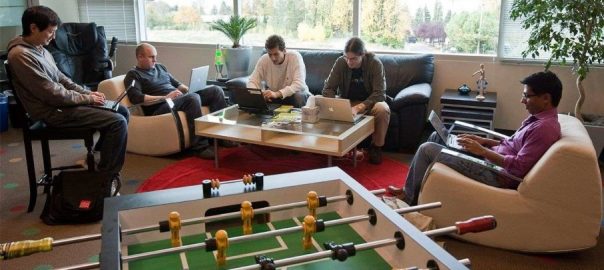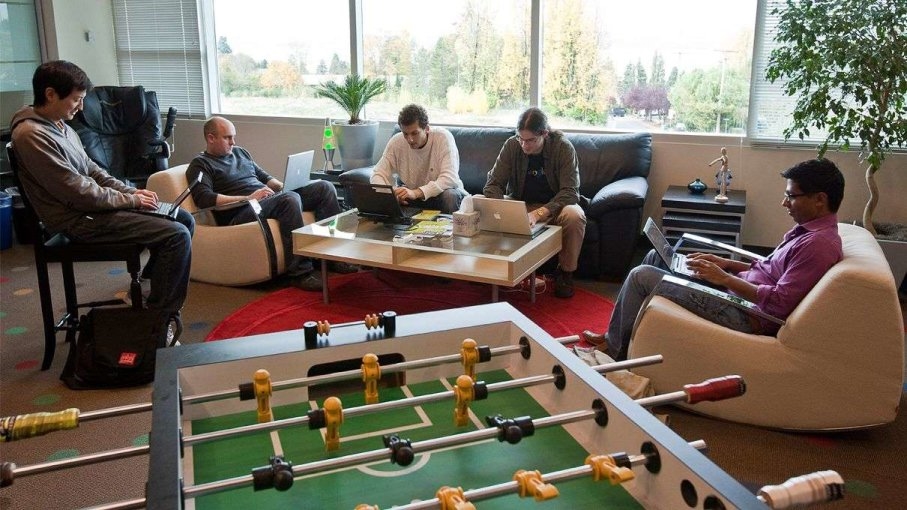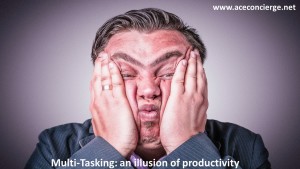Picture yourself at work, dressed for the job you want over the job you have, opening emails with “Hi” and “Hello” instead of “Hey.” You fix your hair, strike a power pose, then march down the hall for that client meeting you’ve been prepping for all week. This presentation could make or break the quarter and your upcoming evaluation. Pressure’s on.
You reach the end of the hall, take a deep breath, get on your hands and knees and push yourself down a yellow tube slide. Your pants ride up as you hit a turn too hard and you fumble your laptop. You flub the landing and lose a shoe in the process. You tumble onto the boardroom floor as your client enters the room. You are thirty years old.
Ask yourself, if you had an office slide, would you use it? I know people who wouldn’t be caught dead wearing shorts around their coworkers – does that sound like someone lining up for a workplace slide?
Whether it be office playground equipment or dedicated nap rooms, LinkedIn is full of top 10 lists of the “coolest offices” stocked with millennial perks. Not to sound off on millennials, but you’d be hard-pressed to find a Gen-X’er who thinks arcade games have a home in the workplace. Back in the day, offices had watercoolers – the end. There weren’t beanbag chairs or billiards to set a social atmosphere. There was water, and it brought people together.

What’s the point
Now, I might not sound like I get it, but I get it. I understand why employers do this, but I don’t understand why people fall for it. Like, it’s 2019, haven’t we all figured out that “unlimited vacation” is the forbidden fruit of the workplace? With the social dynamics at play, unlimited vacation amounts to no more than two weeks and bragging rights. It also means no payout for unused vacation. Why are we still taken by this?
As people, we’re largely controlled by unwritten social rules. More often than not, we fall in line with groups, we feel indebted to people who give us things, and we can be swayed by authority. It’s through these principles that flamboyant office perks benefit employers more than employees.
Take catered lunches, for example. Sure, you may spend less on groceries, but you’re also less likely to leave the office and unplug for a real break. In fact, a study from Towers Watson suggests provided meals result in shorter breaks and lead to increased productivity. While that’s beneficial to everyone, let’s not overlook who benefits the most here.
Apart from “free” lunches, office gyms have become more and more popular because who doesn’t want to be sweaty and red-faced in front of their coworkers? Instead of dedicating office space to a Bowflex, is it too much to ask for an expensed gym membership so I can exercise when it’s convenient? I don’t want to stick around for Zumba, I want to go home to my dog.
What’s that? I can bring my dog to work, too? It’s like I never have to leave…
Believe it or not, there used to be a time where ‘working’ and ‘being at work’ were more or less synonymous. Now, with all the ‘perks’, there’s a pressure on employees to stick around and pay for these freebies with their time. Employers don’t provide them out of kindness. If they were truly looking to benefit employees, they’d do something crazy like improve benefit plans or increase bonuses.
It’s a balancing act
Don’t get me wrong, I don’t want to work in a grey cubicle in silence and isolation. I don’t hate fun, I just think the majority of these trendy perks are self-serving, manipulative, and amount to no more than conversation starters and bragging rights. Really, your office has a Foosball table? When was the last time you saw anyone give a crap about Foosball?
There’s a middle ground that can accommodate everyone.
Step into Stryve’s office and you’ll see what I mean. We’ve got a funky mural, a comfy area complete with Lego and puzzles, a cupboard full of snacks, and a fridge full of Friday drinks (if you’re around Catalyst137 after 3:30 pm, consider this an invite). We do team lunches on birthdays and special occasions and we have an accommodating benefit plan. On top of all that, there’s nothing conspiring to keep us at work longer than we need to be.
There’s also nothing to distract us. I know, some office perks are meant to foster creativity and collaboration, but do you really expect me to believe your team of programmers isn’t trysting with that Xbox in the rec room?
When someone has trouble sleeping, one of the first behavioural changes is to stop watching TV or using your phone in bed. When your bed becomes a place for sleep and nothing else, your mind and body slowly fall in line. Is it a stretch to wonder what makes the workplace so different?
What do employees want?
This is my soapbox, so I’m going to speak for all employees. That said, I don’t think I’m going to blow any minds here.
Employees want to like going to work. Employees also want to leave after 8 or 9 hours. They want to be able to afford groceries along with the resulting dental treatment. They want a desk set up that doesn’t slowly cripple them and they want to listen to something other than the hum of fluorescent lights.
They also want to like their coworkers. In fact, it would be really cool if they could be friends. This doesn’t mean forcing them into mandated social events outside of working hours, it means creating a social environment at work that fosters relationships, like an open work area.
Employees want to feel invested in their work. They want to be set up for success and they want to be trusted to achieve it. They want access to resources and training that will enable growth and advance their careers.
This isn’t about a list of demands, it’s about bridging the gap between what trendy workplaces offer and what employees actually want. If employers want to throw ice cream funds and office kegs at their team, go for it. But they shouldn’t distract, detract, or replace what empowers employees to be at their best.
Business & Finance Articles on Business 2 Community
(25)









